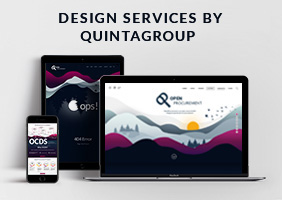Whenever we come to think about the world history and its most memorable developments, we may trace one interesting tendency - people are prone to adapt to any type of circumstances and innovations, however difficult or challenging they are. Still, it’s not about bending all the time to get accustomed to the constantly changing world, it’s about adapting to these changes together with trying to adopt new techniques to better cope with them. The twentieth century was marked by the emergence of technical inventions that changed our lifestyle and triggered further innovations in the sphere of technologies. Computers, laptops, various types of PDAs, Apple iPods and iPhones contribute to the digital era we are now living in, while the constantly growing World Wide Web influences our lives even more. The introduction of new ideas designed to help us keep up with the modern world leads to the need for becoming adaptive to these changes. However, these are not only people that have to adapt, but also the technologies themselves in order to be able to coexist and respond to the burning needs of our era.
What does adaptive design mean?
When asked about the most commonly used device for browsing the net, the first on-the-spot answer would probably be ‘A computer’, right? Not necessarily. The pace of life is getting quicker all the time, and the spread of state-of-the-art devices is inevitable. More and more users surf the net on their mobile devices while being stuck in the traffic jam or during a coffee break. Therefore, web designers face a new challenge - how to make a website that would adapt to various screen sizes, resolutions and other characteristics. And this is what adaptive design largely deals with. However, there are some details that we need to shed light on concerning the differences between responsive and adaptive web design.
Responsive vs Adaptive design
Ethan Marcotte in his article as of 2010 on responsive web design was among the first to trace the problem and suggest some solutions. It should be noted, though, that his idea of responsive design is of three-componential character - he advised using fluid grids, fluid images and media queries to create responsive websites. That is, he referred to the very layout only.
Then the book by Aaron Gustafson appeared under the title ‘Adaptive Web Design’ and spread certain confusion among web designers - should the two notions of responsive and adaptive web design be understood as similar or different ones? Or, perhaps, the latter simply expands the idea of the former? Neither assumption appears to be absolutely correct.
The thing is that adaptive web design is a broader notion, irrespective of the fact that it appeared later than responsive. It covers not only fluid layout, but also the general ability to meet the broadest requirements with the best possible solutions. This explanation, however, brings up another confusion - how should we then understand progressive enhancement?
Progressive enhancement vs adaptive design
In fact, the very term progressive enhancement speaks for itself - it concerns the elaboration of ideas for the simplest possible forms of devices, i.e. gradual ‘enhancement’ of their capabilities.
Adaptive design in its turn embraces the two notions of responsive design with its emphasis on building fluid layout and progressive enhancement with its struggle for gradual, but efficient advancement.
Quintagroup attempts at using the most adaptive design technologies that would respond to the individual needs of our clients. We always welcome new ideas and weave them into the bunch of our experience in web development.
Adopt our services on adaptive design
So, if you are interested in our adaptive design solutions, contact us at any suitable time and you will find out what we can suggest in your particular case!

